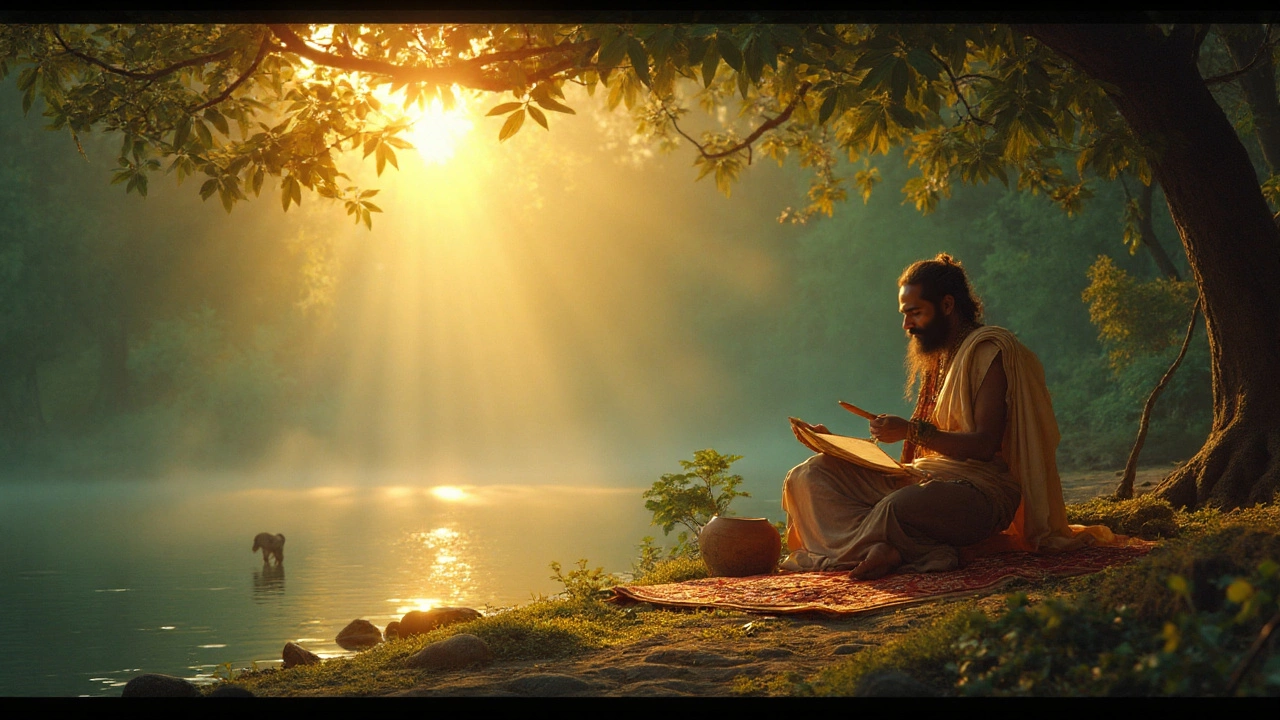First Poem in India – Origins, History & Influence
When we talk about the first poem in India, the earliest recorded poetic work that emerged on Indian soil, also known as the inaugural Indian verse, we’re looking at a cultural milestone that set the tone for centuries of literary creation.
That milestone didn’t appear in a vacuum. It grew out of an oral tradition, the practice of passing stories, chants, and verses from one generation to the next by memory. Before anyone could write anything down, storytellers sang rhythmic lines around fires, creating a shared language of emotion and rhythm. This living archive allowed early poets to experiment with meter, rhyme, and imagery long before ink met paper.
One of the earliest written forms that fed into the first poem is the Sanskrit verse, the structured poetic style found in ancient scriptures and hymns. Sanskrit’s precise phonetics and grammatical rules gave poets a toolbox for crafting elegant lines that could be memorized easily. Those early verses acted as templates, showing how sound and meaning could dance together—a principle that still drives modern Indian poetry.
Why the First Poem Still Matters
Understanding the first poem in India helps us see why Indian poetry, the diverse body of poetic works from Sanskrit epics to contemporary Hindi verses feels so rich. The early experiment with rhythm and theme set a template that later poets adapted for everything from devotional chants to romantic couplets. That lineage is why you’ll notice familiar patterns in today’s status updates, inspirational quotes, and even birthday wishes that pop up on this site.
Beyond the artistic side, the first poem also marks a turning point in literary history, the chronological record of written expression in India. Scholars trace the evolution of language, meter, and cultural values back to that single piece, using it as a reference point to compare later works. Whether you’re a student, a writer, or just a curious reader, seeing how that ancient line shaped later narratives gives you a concrete anchor for exploring the rest of India’s literary treasure trove.
Now that you’ve got the big picture, the collection below will walk you through related themes—powerful quotes, deep reflections, and modern twists on classic verses. You’ll find practical takeaways, inspirational snippets, and concrete examples that show how the spirit of the first poem still lives on in everyday expressions.

Who Is the First Poet of India? Valmiki, Rigveda, and Early Indian Poetry
Wondering who the first poet of India is? Quick answer: Valmiki is hailed as Adi Kavi, but the Rigveda predates him. Here’s the clear, nuanced story with proofs.
Read more